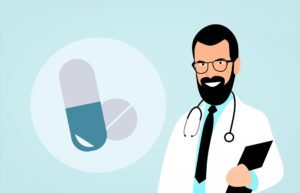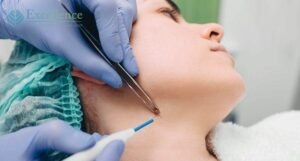In recent years, New Jersey has made significant strides in addressing drug-related offenses through innovative approaches that prioritize rehabilitation over incarceration. The state’s Drug Court Programs serve as a crucial alternative for individuals struggling with addiction, offering them a chance to recover while remaining engaged in their communities. This blog explores the various aspects of New Jersey’s Drug Court Programs, their benefits, and how they contribute to a more effective response to drug-related crime.
Understanding Medicaid Rehab in New Jersey: A Comprehensive Guide
Accessing addiction treatment can be a daunting experience, especially when navigating the complexities of health insurance. For many individuals in New Jersey, Medicaid provides essential coverage for rehabilitation services. This blog will explore the ins and outs of medicaid rehab nj in New Jersey, detailing the services covered, how to access these services, and what to expect during treatment.
Understanding New Jersey’s Drug Court Programs
New Jersey’s Drug Court Programs are designed to provide an alternative to traditional criminal justice processing for individuals charged with drug-related offenses. Established in the late 1990s, these programs focus on treating substance use disorders through a structured, therapeutic approach rather than through incarceration. Participants undergo comprehensive assessments to determine their needs and receive individualized treatment plans tailored to their circumstances.
How Drug Court Works
When an individual is charged with a drug-related offense, they may be eligible for the Drug Court Program. The process typically includes the following steps:
- Assessment: Individuals are assessed to determine their level of substance use and the appropriate treatment required.
- Acceptance: If eligible, the individual agrees to participate in the program, acknowledging the conditions and expectations set forth by the court.
- Treatment: Participants engage in a structured treatment program that may include counseling, therapy, and support groups. Regular drug testing is also conducted to monitor progress.
- Court Appearances: Participants must attend scheduled court appearances, during which judges monitor their progress and provide support and encouragement.
- Completion: Successful completion of the program may lead to reduced charges, probation, or dismissal of the case, depending on the individual’s circumstances.
The Importance of Treatment Over Incarceration
One of the primary goals of New Jersey’s Drug Court Programs is to shift the focus from punishment to treatment. Incarceration has been shown to be ineffective for addressing substance use disorders, often leading to recidivism. By offering treatment options, Drug Courts aim to break the cycle of addiction and criminal behavior.
Reducing Recidivism Rates
Research has demonstrated that Drug Court participants have significantly lower recidivism rates compared to those who are incarcerated. By providing comprehensive treatment and support, individuals are better equipped to make positive changes in their lives. A study conducted by the National Institute of Justice found that participants in Drug Court programs had a 26% lower likelihood of reoffending than those who went through traditional criminal justice channels.
Cost-Effectiveness
Drug Court Programs also present a more cost-effective solution for taxpayers. Incarceration can be expensive, often costing thousands of dollars per inmate each year. In contrast, investing in treatment programs can lead to significant long-term savings by reducing the need for repeated incarceration and the associated criminal justice costs. By helping individuals recover, society can save money while also addressing the underlying issues of addiction.
The Role of Support Services
An essential component of New Jersey’s Drug Court Programs is the inclusion of support services that address the broader challenges faced by individuals in recovery. These services may include:
- Mental Health Counseling: Many individuals struggling with substance use disorders also experience co-occurring mental health issues. Integrating mental health services into the treatment plan ensures a holistic approach to recovery.
- Job Training and Employment Services: Assisting participants in finding stable employment is crucial for long-term recovery. Many Drug Court Programs offer job training and resources to help individuals secure gainful employment.
- Housing Assistance: Stable housing is a key factor in recovery. Drug Court Programs often provide resources and referrals to help individuals find safe and supportive living arrangements.
Challenges and Considerations
While New Jersey’s Drug Court Programs offer a promising alternative to incarceration, they are not without challenges. It is essential to consider several factors that can impact the effectiveness of these programs.
Eligibility Criteria
Not all individuals charged with drug-related offenses are eligible for Drug Court. The program typically targets non-violent offenders who demonstrate a genuine willingness to participate in treatment. Those with more severe criminal backgrounds may be diverted to traditional criminal justice processes, potentially limiting access to vital recovery resources.
Treatment Accessibility
Access to quality treatment can vary significantly across the state. In some areas, individuals may face barriers such as limited availability of treatment facilities, long waitlists, or insufficient resources. Addressing these disparities is crucial to ensure that all individuals have equal access to the support they need.
Continued Support Post-Program
While successful completion of a Drug Court Program can lead to reduced charges, ongoing support is essential for long-term recovery. Individuals who have completed the program should have access to aftercare services, support groups, and resources to help them maintain their sobriety and reintegrate into their communities.
Success Stories and Impact
New Jersey’s Drug Court Programs have produced numerous success stories, demonstrating the positive impact of treatment-focused approaches. Many individuals have gone on to lead fulfilling lives, contributing to their communities and serving as role models for others in recovery.
Community Engagement
Beyond individual success, Drug Court Programs contribute to healthier communities. By addressing the root causes of drug-related crime, these programs help create safer neighborhoods and reduce the stigma associated with addiction. Increased awareness and understanding of substance use disorders can foster compassion and support within communities, encouraging individuals to seek help without fear of judgment.
Exploring WellCare of New Jersey: Your Guide to Health Coverage
In New Jersey, WellCare offers essential health insurance services that cater to individuals and families, particularly those eligible for Medicaid and Medicare. With a focus on providing quality care and support, WellCare is a significant player in the state’s healthcare landscape. This blog will delve into what wellcare of nj New Jersey offers, its services, benefits, and how to access its resources.
Conclusion
New Jersey’s Drug Court Programs represent a progressive and effective response. To the complex issue of substance use and criminal behavior. By prioritizing treatment over incarceration, these programs offer individuals a chance to reclaim their lives and contribute positively to society. As New Jersey continues to refine and expand its Drug Court Programs. The focus remains on providing comprehensive support and resources to ensure lasting recovery for all participants. Ultimately, these initiatives highlight the importance of compassionate approaches to addiction, fostering hope and healing for individuals and communities alike.







More Stories
Mole Removal Sydney: How Choose Right Clinic
Benefits of Using a Wheelie Walker Explained
Role of Vitamin C as a Horse Supplement